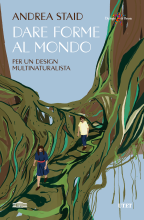Play: “an irrepressible human need”
€ 3.00It was once possible to think that play was completely separate from “reality”. During the 20th century, that clear boundary between the two became more difficult to delineate and in the 21st century, play has entirely penetrated the tools we use for work and in our daily lives, like computers and smartphones. What’s more, we fear gambling addictions and perverse effects caused by overly realistic games may erupt into our anything-but-playful “reality” and cause untold damage. It is “play”: an unstable and pervasive dimension that forces us to re-consider categories created by maestros such as Johan Huizinga, Roger Caillois and Umberto Eco. The latter declared that play (together with nourishment, sleep, affection and “asking why”) is one of the five fundamental human needs. From dice to consoles and emoticons, we see he cannot be proved wrong.
Video
Stefano Bartezzaghi, is an expert of linguistic games, puzzles and their history. Since 2000 he writes a column on puzzles (Lessico e Nuvole) and one on linguistics (Lapsus) in la Repubblica. His books include: L’elmo di don Chisciotte. Contro la mitologia della creatività (i Libri del Festival della Mente, Laterza, 2009); Non se ne può più. Il libro dei tormentoni (Mondadori, 2010); Come dire. Galateo della comunicazione (Mondadori, 2011); L’orizzonte verticale. Invenzione e storia del cruciverba (2007), Scrittori giocatori (2010) and Una telefonata con Primo Levi (Centro Studi Primo Levi, 2012), all for Einaudi; Il falò delle novità. La creatività al tempo dei cellulari intelligenti (Utet, 2013); La ludoteca di Babele. Dal dado ai social network: a che gioco stiamo giocando (Utet, Dialoghi sull’uomo, maggio 2016).
Stefano Bartezzaghi & i Dialoghi
2012
Il programma sarà disponibile a breve...


